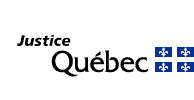Healing Broken Bonds Podcast Launch
LISTEN NOW
Almost two thirds of us have experienced traumatic events in our lives. How do these experiences persist beyond those moments: in our lives, our bodies, and our romantic relationships? Join Dr Heather B. Macintosh as she explores these questions with couples on their journey to healing broken bonds.
Check out the first 3 episodes:
- The Impacts of Trauma in a Romantic Relationship
- Emotional Regulation Between Partners
- Mentalizing: Staying Curious with a Partner
Call for participants: Healing Broken Bonds Podcast
NOW RECRUITING! | Application Form
How does trauma impact a person and their romantic and sexual relationships? How does trauma impact our capacity to connect to our own bodies and those of others? As we navigate healing from past traumas, what is our relationship to our own bodies, our trans and non-binary bodies, and those of our partners? As we navigate our sexualities after sexual traumas, how do we find the freedom to explore and heal our sexual selves in relationship to our partners?
The Healing Broken Bonds podcast is seeking couples and experts who would be interested in exploring these questions in conversation with Dr. Heather B. MacIntosh on a podcast about the unique experiences of trauma survivors in our lives and relationships.
Selected participants will be invited to participate in this podcast through conversations with Dr. MacIntosh that are educational and informative.
Dr. Heather B. MacIntosh is one of the leading experts in the area of childhood trauma, couple relationships, and couple therapy. She works with trauma survivors to help them learn and grow in their healing from trauma and its impacts on sexuality, security, safety, and closeness.
Participation in this podcast will be informative and educational in nature and will not represent a clinical relationship in the present or future. Each participant will be invited to create an alias for the podcast episode.
Participants need to be available to interview in person in Toronto, Ottawa, or Montreal in August or September 2025.
Interested participants should fill out the application form by July 31st, 2025. If you have questions, please healingbrokenbonds.socialwork [at] mcgill.ca (subject: Podcast%20Application) (email) with any questions.
Thank you!
FAQs
What precautions will be taken to protect my anonymity?
Each participant will be invited to make an alias name - a name that can’t easily be traced back to the real you (e.g., we don’t recommend using a middle name) - that we will use to refer to one another during the recording. Also, we may cut or record a quote again, asking for it to be rephrased to remove personal identifying content (like places, names, etc). That being said, we will be using people’s real voices, so someone close to you could still recognize you.
What are the intentions of the podcast?
The aim of the podcast is to share relatable struggles we have in relationships when trauma makes it more challenging and how one may address them with a relational and trauma informed approach.
The podcast is funded by FAVAC to support the dissemination of Dr Heather MacIntosh’s research on the efficacy of the model she created: Developmental Couple Therapy for Complex Trauma.
What does it mean to talk about my trauma and/or its impacts in a public format?
An important consideration for anyone thinking about talking about personal and potentially sensitive or even painful things in a public forum is that once your story is out in the public domain, we can’t control what other people do with it. That means you might run into other people discussing your story in ways you might object to without knowing it’s about you. We recommend thinking about this carefully, and making compassionate choices about the things that you may want to keep private vs the things you are comfortable making public.
Tentative Timeline
June – July: Call for participants
August: Application reviews and interviews with potential podcast participants.
August – September: Pre-production call to discuss process, content, and participant needs. Schedule interviews (August and September 2025).
August – September: Record interviews in Toronto, Ottawa, or Montreal
September – October: Post interview call
November – December: Podcast release
Being of Two-Spirit, Transgender, and Non-Binary Individuals
Partner Project: Sexual Health and Wellness
Status: Recruitment closed
Graduate Student Investigator: cheeko [at] uwindsor.ca (subject: 2S%2FTNB%20sexual%20health%20and%20well-being%20study) (Oliver Cheek), University of Windsor; Supervised by Dr. A. Dana Ménard
Couples in the Time of COVID
Status: Project complete
Principal Investigator: heather.macintosh [at] mcgill.ca (Heather B. MacIntosh)
